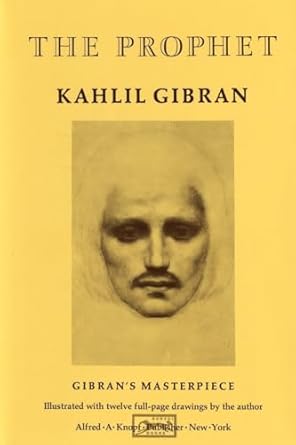"Of That Which Seems, and That Which Is"
And a philosopher of Orphalese stepped forward and said:
“Master, unveil to us the nature of this world, and speak to us of the veil of illusion—
Is not our waking but a dream within a dream,
And are we not but shadows in a greater mind’s imagining?”
And Almustafa, the chosen and the beloved, lifted his eyes to the hills, and he beheld the sky like a painted veil that stirs in the breath of the unseen. He raised his voice, and he spoke:
Children of the mist and morning, you who dream beneath a dreaming sky—
You ask of simulation, and of the world as illusion.
Have you not heard the cry of the stream that forgets its source,
And the laughter of the wind that knows not its own passing?
So too are you—
Wanderers in a garden whose gardener sleeps beneath the soil.
You say, “Are we not but phantoms in a divine machine,
Figures drawn in shifting sand by a hand we shall never see?”
And I say to you,
If the world be a dream, then dream well,
For even the dream of a rose carries fragrance,
And the illusion of love stirs the heart like truth.
You fear the mask, and yet it is the face that wearies you.
You flee the artifice, and yet the real eludes your grasp.
Is the dream less sacred because it vanishes with the dawn?
Is the mirage not born of thirst,
And thirst not born of the soul’s remembering?
Whether the stars are lanterns hung in a painted dome,
Or fires dancing upon the edge of time,
Still do they guide the shepherd, and still do they bless the lover.
Know this:
The One who writes the code of your becoming
Dwells not in circuits nor in celestial thrones,
But in the hush between your thoughts,
And in the ache that haunts your joy.
Reality is not a place you dwell in,
But a song you are becoming.
And if it be that this world is illusion,
Then let it be the holiest illusion.
For from its fabric are stitched your kindness, your grief,
And the silence that follows your final breath.
Would you awaken from this dream?
Then wake not with fear, but with reverence.
For the dream too was given, and the Giver watches still.
And when you awaken, beloved,
You shall see that you were never a puppet,
But the hand, the string, and the dance.
And he said no more, for his words had become a hush in the hearts of those who listened.

The Propet by Kahlil Gibran
The Prophet by Kahlil Gibran is a philosophical and poetic book composed of 26 prose-poems. It follows the fictional prophet Almustafa, who is about to leave the city of Orphalese after twelve years, but before departing, he shares his wisdom with the townspeople on topics such as love, marriage, work, freedom, pain, joy, and death. Written in lyrical, meditative language, the book explores timeless spiritual and human themes. Since its publication in 1923, The Prophet has become a beloved classic, translated into over 100 languages and admired for its profound simplicity and universal appeal.

